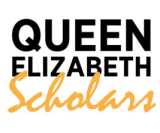 McGill University-University of Ghana QES program
McGill University-University of Ghana QES program
A network of interdisciplinary, solution-oriented researchers to improve the livelihoods and food and nutrition security of adolescent girls and women farmers in rural Ghana.
The Queen Elizabeth Scholars (QES) program has funded LINkIN-Ghana, a McGill University-University of Ghana program to strengthen the capacity of researchers who work with farmers, entrepreneurs, community leaders, and local institutions to develop solutions to agriculture and food and nutrition security. We seek to improve especially the lives of adolescent girls and women farmers in rural Ghana through expanding knowledge and skills, and improving access to services and markets.
LINkIN-Ghana, with core team being Dr. Grace Marquis (Faculty of Agriculture and Environmental Sciences, McGill), Dr. Nii Addy (Institute for the Study of International Development, ISID), and Dr. Richmond Aryeetey (School of Public Health, University of Ghana), will support a network of exceptional scholars from diverse disciplines who are at the doctoral, post-doctoral, and early career stages.
To thoroughly understand the complexity of agriculture and food security as well as their link to nutrition and to better appreciate diverse sectors’ contribution to these issues, the program integrates research and professional training with internships hosted at non-academic institutions working in rural communities.
Cross-cutting research issues will include but not be limited to
- (i) the quality of production of small-scale women farmers working in the area of high-value animal products and other agricultural commodities,
- (ii) farmers’ association(s) and cooperatives to support women farmers and facilitate access to agriculture and financial services and development of small businesses,
- (iii) adolescent girls’ and young women’s knowledge and skills needed to become successful agriculture-related entrepreneurs; and
- (iv) institutional collaborations to provide services and support for adolescent girls and women’s nutrition, development, and income generation potential.
Who is it for?
LINkIN-Ghana will support a network of exceptional scholars either Canadian or citizens of eligible Sub-Saharan LMIC from diverse disciplines who are at the doctoral, post-doctoral, and early career stages.
- Doctoral researcher: an individual conducting research at the Ph.D. level.
- Post-doctoral fellow: an individual who is conducting research after the completion of their doctoral studies.
- Early career researcher: an individual who has completed independent research for 4-7 years or is in a tenure-track position at a degree-granting institution. An equivalent to a tenure-track position in Ghana is a Lecturer or Research Fellow who has previously done a post-doc.
Consult the full eligibility criteria and application process >
What will scholars do?
To more completely understand the complexity of the issues of agriculture and food security and their link to nutrition, and appreciate the contribution that diverse sectors make, scholars will integrate research and professional training with internships hosted at non-academic institutions working in rural communities. More specifically, scholars will:
- Receive professional development training in Canada, Ghana, and/or another eligible Sub-Saharan LMIC to enhance leadership and research skills.
- Network with other QEScholars.
- Participate in community engagement activities.
- Spend a minimum of 90 days in their scholarship
- Obtain internship experience at a for-profit or not-for-profit Research Placement Partner (RPP) for a duration of at least 30% of their scholarship duration (the RPP will be chosen based on interests of the QES)
- Develop a knowledge sharing plan to ensure that the University of Ghana will benefit from the acquired knowledge/new skills and established networks.
Where does it take place?
For Canadians, the research and RPP internship will take place in Ghana. Community engagement activities can take place either in Canada or in Ghana during any time of their scholarship. The knowledge sharing must take place at the University of Ghana.
For citizens of Sub-Saharan LMIC, the internship and community engagement activities will take place in Canada and/or another eligible Sub-Saharan LMIC. The research activities should be integrated into the RPP experience. Community engagement activities can take place during any time of their scholarship in Canada. The knowledge sharing must take place at the University of Ghana.
How much is the award?
- Up to CAD 20,000 for a year for doctoral researchers (includes travel, living allowances, and research expenses)
- Up to CAD 25,000 for a year for post-doctoral fellows (includes travel, living allowances, and research expenses)
- Up to CAD 30,000 for a year for early career researchers (includes travel, living allowances, and research expenses)
Current QES
See profiles of the current QES >
For more information
- Direct questions to Dr. Marquis at grace.marquis [at] mcgill.ca (subject: Queen%20Elizabeth%20Scholars%20(QES)%20program%20) ; or Dr. Nii Addy at nii.addy [at] mcgill.ca (subject: Queen%20Elizabeth%20Scholars%20(QES)%20program%20) , or Dr. Richmond Aryeetey at raryeetey [at] ug.edu.gh
- Queen Elizabeth Advanced Scholars Program Winning Proposals




